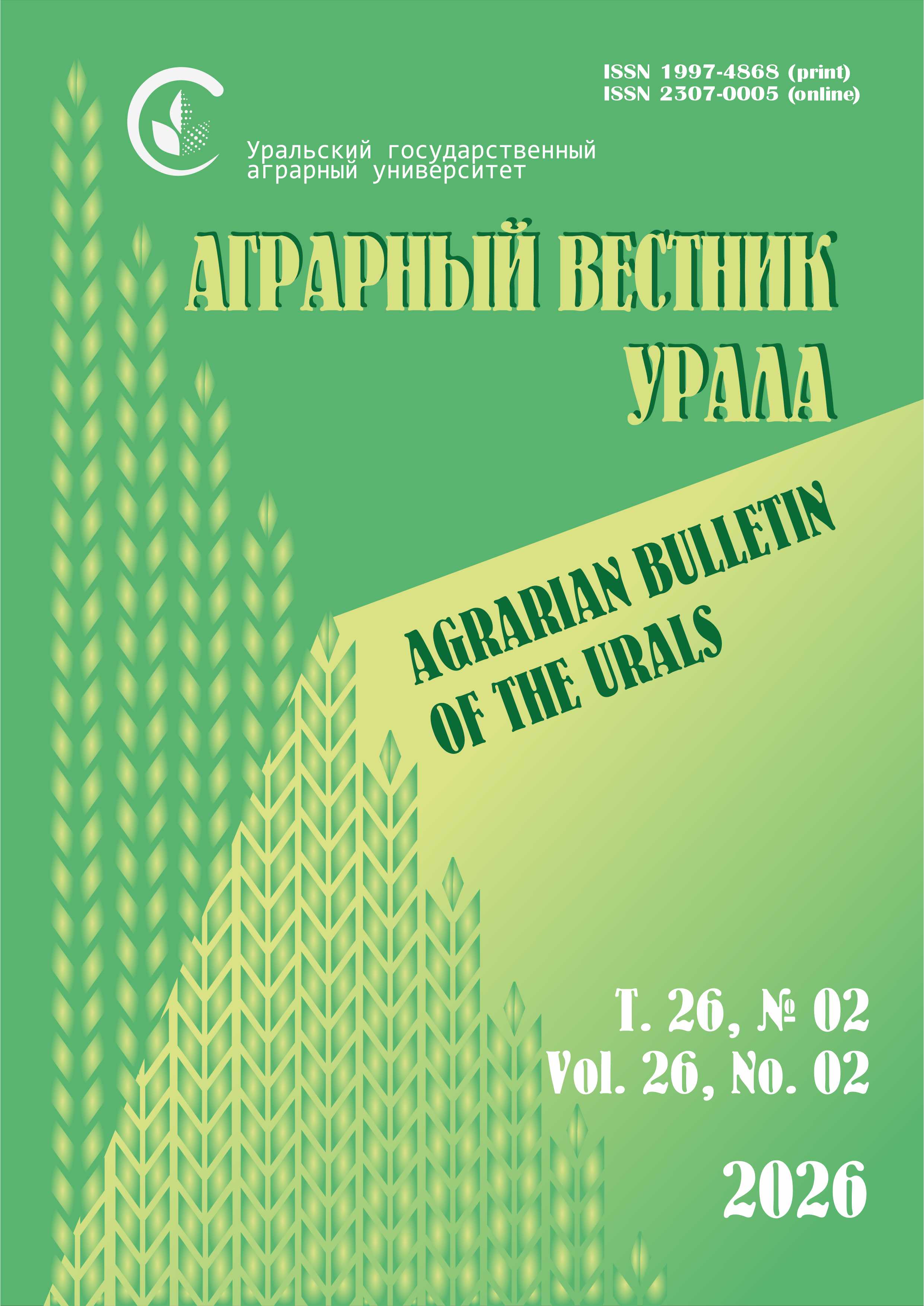Authors:
S. N. Sivtseva,
T. F. Makhovikova,
L. P. Rybashlykova
North Caucasian branch of the Federal Research Centre of Agroecology, Amelioration and Protective Afforestation of Russian Academy of Sciences, Achikulak village, Stavropol Krai, Russia
Federal Scientific Centre of Agroecology, Complex Melioration and Protective Afforestation of the Russian Academy of Sciences, Volgograd, Russia
E-mail: This email address is being protected from spambots. You need JavaScript enabled to view it.
Abstract. Scientific novelty. Based on experimental data, new modern knowledge about the productivity of pastures has been obtained to determine the mechanism of their transformation under the influence of pasture load. Practical significance. Data on the regenerative and productive potential of herbaceous plants in the forest pastures of the Bazhigan sandy massif with varying degrees of pasture load were obtained. The results of intensification of pasture land use, without the use of appropriate land reclamation measures, lead to degradation and desertification. In the 70–90 years, the Achikulak scientific research agroforestry experimental station, in large foci of deflation of the Bazhigan sandy massif, carried out forest reclamation with plantations of squat elm and robinia, on an area of more than 500 hectares. Complex multi-tiered plant cenoses were created, including various types of plantings (backstage, strip, savanna), transforming the environment, and as a result, increasing the productivity and sustainability of pasture lands. The purpose of the research is to study the influence of the degree of livestock load on the dynamics of changes in productivity and structure of grassland in pasture and natural lands. Methods. The research was based on field experiments using geobotanical surveys during the growing season. The yield of the forage was determined by the mowing method on each type of pasture in 4-fold repetition. Results. Uncontrolled use of forage lands by animals has an impact on the increasing degree of degradation of pasture phytocenoses, manifested in a violation of the stability of natural ecosystems, low forage productivity (open natural lands 0.07–0.13 t/ha), loss of valuable species of cereals, legumes and various grasses from the herbage, a decrease in their growth and development. It has been established that pastures reclaimed by tree plantations, with their intensive use and not subject to deflation, are 1.1–1.5 times more productive than natural open lands. Pastures with robinia plantations (3.5–4.0 t/ha) have high productivity of herbage during the growing season at optimal and minimum load, respectively. With an increase in the load on pastures, the degree of loss of species is 45–52 % at optimal load, 60–84 % at high load. The supply of phytomass at optimal load decreases by 0.4–0.6 t/ha or 20–22 %, at high by 0.7–1.3 t/ha or 35–45 %.
Keywords: pastures, plantings, vegetation, herbage, fodder lands, anthropogenic load
Acknowledgements. This study was funded within the framework of State Task No. 124013000642-9 “Development of the theory and system of measures for the sustainable functioning of pasture ecosystems in arid and subarid zones of the Caspian Sea region”.
For citation: Sivtseva S. N., Makhovikova T. F., Rybashlykova L. P. The intensity of cattle grazing as a factor in changing the productivity and structure of vegetation cover of forest pastures of the Bazhigan sandy massif. Agrarian Bulletin of the Urals. 2024; 24 (11): 1437‒1446. DOI: https://doi.org/10.32417/1997-4868-2024-24-11- 1437-1446. (In Russ.)
Download the full text of the article












